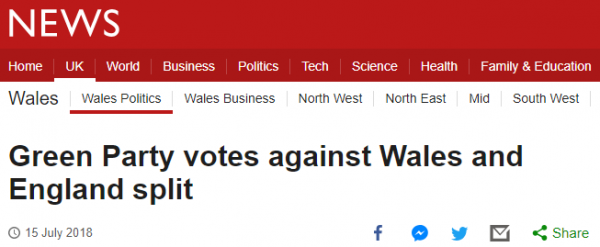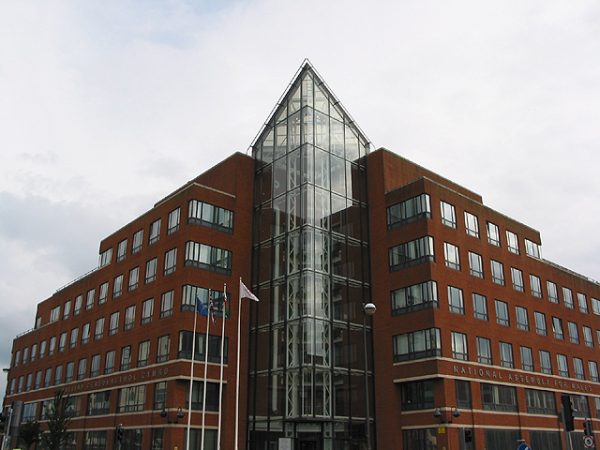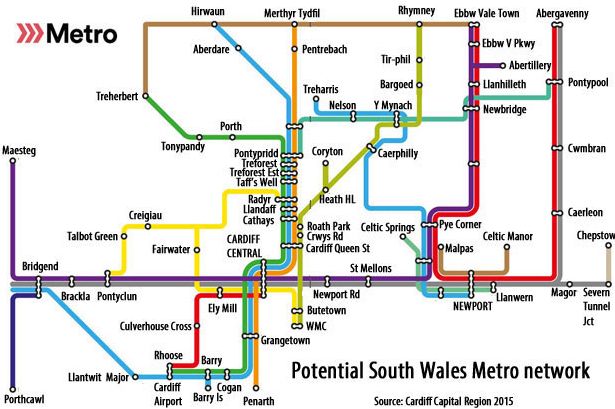I haven’t prepared any in-depth or weighty post for this week; instead, I’ve put together a few things I’ve been thinking about, or been sent, that might also be of interest to you. You know me – always trying to please!
◊
COALITIONS
One of the more bizarre responses to the 2016 EU referendum result came from Leanne Wood, then leader of Plaid Cymru – ‘Let’s go into coalition with Labour!‘, she suggested.
Quite what this was supposed to achieve no one seemed to know, but it struck me at the time as a predictable response from Plaid Cymru’s clenched fist and beret tendency. Those who would still regard the Tories as ‘the real enemy’ even if ISIS invaded the Rhondda Fach.
I mention this because even with the Red Queen dethroned Plaid Cymru seems to be thinking along similar lines today. With new leader Adam Price calling for a coalition of Remain-supporting parties for the next UK general election.

Ideally, of course, Plaid Cymru would like a coalition with Labour, but thanks to Comrade Corbyn’s vacillating that is not possible. So with that hope dashed, Plaid now seeks a deal with the Liberal Democrats, the Greens, Change UK and the SNP.
(UPDATE: It’s all happening! Now the ‘Welsh Government’ has come out for Remain.)
Let’s consider the SNP first. Things are very different in Scotland, where the SNP will be hoping to win every seat in the next UK general election; so the chances of them doing a deal with other parties, which would almost certainly mean standing down in some seats, is a non-starter.
The SNP could even turn the next general election into a vote on independence and EU membership, especially if Westminster refuses to allow another independence referendum.
Next up is Change UK. If you’re unfamiliar with this lot, then let me explain that they’re a bunch of preening egotists who couldn’t get their own ways in their previous parties. Before the next election comes around clashing egos will have destroyed this collective huff of a party and that’ll be the end of Change UK.
(UPDATE: Within hours of publishing this piece the bust-up happened!)
On to the Greens, aka the Green Party of England, for there is no Wales Green Party. Worse, last year Greens in Wales voted on whether to set up a separate Green party and decided to stay as the Green Party of Englandandwales. Which means that Plaid Cymru wants to work with a party that refuses to recognise Wales as a country!

Finally, the Liberal Democrats, the party that kept the Tories in power at Westminster between 2010 and 2015, and the party that – with its single AM – helps keep Labour in power down Cardiff docks. A gang of opportunistic and amoral politicos that would sell their grannies for a sniff of power.
Despite decades of trying to promote themselves as the ‘nice’ party I have a deep and abiding contempt for the modern Liberal Democrats. I had time for old Geraint Howells and a few others from the genuinely Welsh Liberal tradition, but the modern party is a venomous thing not to be trusted or handled.
Containing individuals like Callum James Littlemore, who is ‘Diary Manager’ for local party leader Jane Dodds. (She needs a diary manager!) I thought for a minute it was a typo, and he worked on her farm, but apparently it’s true. Anyway, young Callum bears out all I’ve thought about LibDems.

Though he can’t have been in Wales for long if he thinks Plaid Cymru “support divisive nationalism”. Listen to Uncle Jac: Plaid Cymru is a bunch of evasive, wishy-washy, ishoo-botherers, forever seeking distractions to avoid confronting any specifically Welsh issue. Brexit being the latest such distraction.
Let’s hope we hear little more from Littlemore. (Couldn’t resist it!)
Ruling out the SNP for the reasons I’ve given, these are the parties that Plaid Cymru is ready to co-operate with thanks to Plaid’s fixation with Brexit. What would Plaid get in return – I mean, would these parties campaign for Welsh independence, or even greater devolution? I think not.
It also means that by turning the next election into a single-issue affair Plaid Cymru will ignore the things people care about. Done in order to line up with England’s Brahmin left, thereby alienating thousands upon thousands of people that must be won over if Wales is to escape the humiliation long ago imposed on us by John Bull; a colonial system loyally maintained into the present day by ‘Welsh’ Labour and its rag-bag of hangers-on.
There’ll be a price to pay for this posturing, this self-indulgent myopia. I sincerely hope.
♦
CORRUPTION BAY
This is a term I coined well over twenty years ago as the title of an opus describing the ‘regeneration’ of Cardiff’s docklands. Perhaps the biggest milking of the public purse ever seen in Wales.
Made possible by Secretary of State for Wales (1979 – 1987) Nicholas Edwards, who set up, in April 1987, the Cardiff Bay Development Corporation (CBDC), to be run by his good friend and fellow High Tory, Sir Geoffrey Inkin. The CBDC became the conduit for pumping hundreds of millions of pounds of public money into land owned by Associated British Ports (ABP), of which Edwards was a director.
The CBDC was wound up in 1999 and Edwards – Lord Crickhowell since 1987 – stepped down from the board of Associated British Ports Holdings Ltd 28 April 1999.
Of course, Edwards/Crickhowell didn’t have it all his own way. For example, despite donning his Welsh National Opera tricorn he failed to get a new opera house to the Bay, but learning from that disappointment he made sure that the ‘consolation prize’ of the Notional Assembly building was located on his patch.
And while it was being built he saw to it that ABP continued to coin it by having AMs and staff use Crickhowell House – at £2m+ a year.

Crickhowell House was soon renamed Tŷ Crughywel, and is now Tŷ Hywel, apparently in honour of Hywel Dda. Which looks very much like an attempt to hide the Crickhowell connection, for I’m not aware of Hywel Dda having any local connections.
Despite having moved into the new Senedd building over ten years ago the ‘Welsh Government’ still agreed a series of leases that bind it – and us – to Tŷ Hywel until 2049, or Armageddon, whichever comes sooner. Guaranteed to cost us many more millions of pounds.
I mention this to give the background to what we see today in Cardiff Bay; the squalid and incestuous wheeler-dealing, the lying and the backstabbing, the cronyism, the incompetence, and the waste of public money.
The latest example of the incestuousness comes with Daniel Bryant leaving lobbyists Deryn for Plaid Cymru. This ménage à trois involving Deryn, Plaid Cymru and the Labour Party is not good for democracy or for Wales.

(Cathy Owens is a director of Deryn. Though I shudder to think what ‘Deryn standards’ might be referring to. Could it be sarcasm?)
But this is what devolution has done. It has given us a class of people, divorced from the real world, who study politics, help out local politicians in their spare time and then, when they finish university, get a job working for a politician, or lobbyists, making contacts, and getting on their party’s list of approved candidates.
They then become politicians and make decisions affecting the lives of people with whom they have little contact and for whom they may have little concern. I say that because politics is no longer about serving the people, it’s a team game of abstractions and all that matters is scoring points against the opposition. (Though in Wales it often seems to be just two ‘teams’ involved.)
This system of musical chairs that begins with teenagers choosing a ‘career’ in politics goes a long way to explaining why Wales is in the mess she’s in today. And also why, alone in western Europe, Wales has no register or regulation of lobbyists – because the lobbyists won’t countenance such legislation!
Speak out in favour of such legislation – as Neil McEvoy has done more than once – and you will be hounded and vilified – by lobbyists, your own party, and anyone else the lobbyists can influence. Is this democracy?
Of course not, but it is Corruption Bay; and those we find lurking there today are worthy successors to the Cardiff Bay Development Corporation.
♦
REMOTE CONTROL
For anyone who missed it over on Jacqui Thompson’s blog, soon-to-be-retired Carmarthenshire chief executive Mark James plans to stay active with Ffynnon Consultancy Ltd . . . of Brighton. A company formed 23 April 2019.
‘Why Brighton?’ you ask, and the answer is because that’s where his mates are. ‘Mates!’ Yes, you must remember his partners from the Cardiff Bay property business. I wrote about it in Baywatch and Baywatch 2. In particular, Mark Philip Carter, a director with James of Building and Estate Solutions Today Limited.
That company is based in Cardiff, but Carter has other companies based at the same Brighton address – 161-163 Preston Road – where we find Mark James’s new venture. Companies such as Friend-James Accountants LLP, Friend-James Ltd and Opher Ltd.
The two directors of Ffynnon Consultancy are James and his missus. He with 400 shares, she with 100.

It was always unlikely that when James retires later this month, and surfboards out of county hall on a flood of tears, that he would put on his slippers and take up some innocent pastime like counting his money, or evicting bloggers.
But now, with his own consultancy, his protégée Wendy Walters taking over his job, and Emlyn ‘Two Barns’ Dole keeping the councillors in check, James should be able to run the show by remote control!
For as the old saying has it – You can’t keep a good man down. Or in this case, a vindictive and manipulative megalomaniac, and Private Eye Shit of the Year 2016.
You know he can’t just walk away – for there is a Wellness Village to build!
Talking of which . . . there’s something nagging me, for there is another company with a very similar name to James’s new venture. This being the Ffynnon Consultancy Group Ltd.
What’s interesting about the Ffynnon Consultancy Group is that its entry in the ‘Welsh Government’s Directory of Welsh Businesses tells us: “At the Ffynnon Consultancy Group we identify and establish business connections across a wide platform of business sectors in the UAE and the GCC”.
‘UAE’ is of course the initials of the United Arab Emirates, and ‘GCC’ stands for Gulf Cooperation Council. So why would this obscure little company be operating in the Gulf?

I ask because I’m sure you’ll remember that it was links with that part of the world that led to suspensions at Swansea University and the halting of city deal funding for the Wellness Village.
The sole director of the Ffynnon Consultancy Group – a one-share company that appears never to have traded or done anything since being formed in June 2016 – was Angela Louise Williams of Llandybie, until she was replaced last Friday by Kevin Williams of New Quay, Ceredigion, with the company’s registered address also transferring to New Quay on 3 June.
Given the Gulf connection, I got to wondering if there might also be a link with Swansea University, the Wellness Village, or with outgoing Carmarthenshire CEO Mark James’s new company Ffynnon Consultancy Ltd?
In the hope of getting answers I e-mailed Ffynnon Consultancy Group and received a reply from Kevin Williams, who expressed surprise that Companies House had allowed registrations from two companies with such similar names.
He assured me that neither he nor Angela Louise Williams had any links to either Carmarthenshire County Council or Swansea University. So that would appear to be that . . . just an amazing coincidence . . .
♦
M4 OR NO M4
As I write this, on Monday evening, the word is that tomorrow the ‘Welsh Government’ will not back the proposed M4 ‘relief road’ through the Gwent Levels and Newport docks. So, on that assumption, here are a few points that immediately popped into the cavernous Jac cranium.
- Let us hope that this unexpected decision heralds a new era of development and investment spread across the country, thereby obviating the need for an M4 ‘relief road’.
- Presumably the announcement will be accompanied by promises to invest in public transport. Again, I urge that thinking goes beyond the Cardiff region, because there is a country out there.
- Nothing would prove this administration’s commitment to both Wales beyond Cardiff and public transport better than a west coast railway line from Carmarthen to Bangor.
- Finally, this decision might deter commuters from Bristol and elsewhere moving into Wales for cheaper housing – have you thought about that? Well, have you!
♦
CAPTION COMPETITION
And, finally, this week’s caption competition. I am grateful to the person who supplied this wonderful photograph of Paul and Rowena Williams of Weep for Wales fame. The picture comes from the XscapeNow Facebook page.

These crooks are former owners of the Radnorshire Arms Hotel in Presteigne, The Knighton Hotel, Plas Glynllifon, Seiont Manor Hotel and other establishments from Northumberland to Cornwall.
I can’t help thinking that holding an illustration of criminals being caught by the police might be seen as tempting fate.
♦ end ♦







